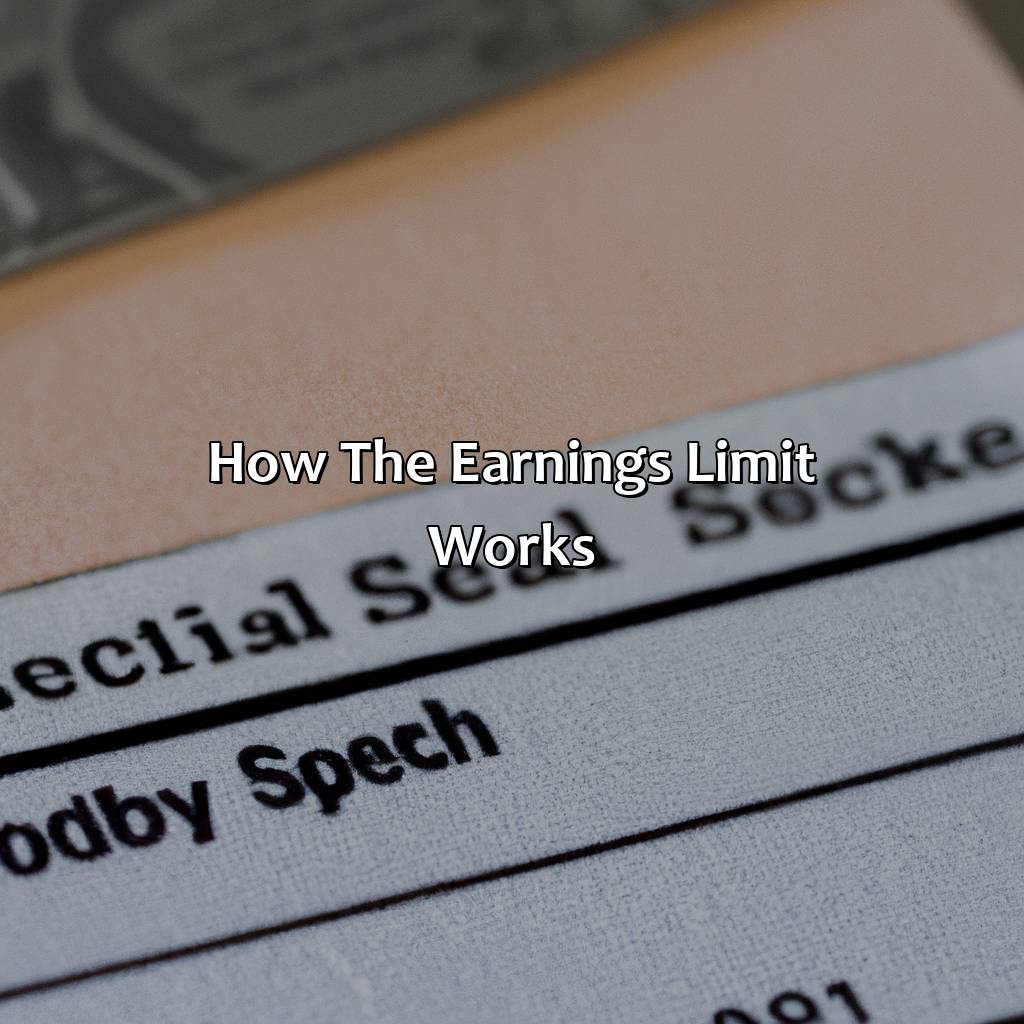What Happens If You Make Too Much Money While On Social Security?
Key takeaway:
- Making too much money while on Social Security can result in a reduction or withholding of benefits: If you earn more than the Social Security earnings limit, your benefits may be reduced or withheld. The earnings limit changes annually, so it is important to stay up-to-date on the current limit.
- Understanding how the earnings limit works can help you avoid losing benefits: The Social Security Administration calculates how much your benefits will be reduced based on your income, and how much will be withheld if you earn over a certain threshold. It is important to understand these calculations so you can plan accordingly.
- Delaying Social Security benefits and timing your earnings can be effective strategies to avoid losing benefits: You can delay taking Social Security benefits until past your full retirement age or reduce your earnings to stay below the limit. Proper planning can help you maximize your benefits.
Do you wonder what happens if your income exceeds the limits set by Social Security? You’re not alone – many people are confused about how extra income affects their benefits. Find out how too much money affects your Social Security in this informative article.
Making too much money while on Social Security
It’s common to wonder what happens when you earn too much while receiving Social Security benefits. While on Social Security, if you make more than the substantial gainful activity (SGA) limit, which is currently $1,310 per month, some of your benefits may be withheld. This threshold is higher for those who are blind, as they can earn up to $2,190 per month. The reduction in benefits is temporary and depends on your income in relation to the threshold. Remember to report your earnings to Social Security to avoid overpayments and issues with your benefits.
One thing to note is that if you’re younger than full retirement age and earn more than the annual limit, which is $18,960, your benefits might be reduced as well. However, this reduction is less severe than the reduction for surpassing the SGA limit. If you’re unsure about the rules surrounding income and Social Security, it’s best to contact your local Social Security office for clarification.
Pro Tip: Keep track of your earnings to avoid overpayment or benefit reduction. It’s a good idea to make an appointment with a Social Security representative to discuss your situation and clarify any issues you may have.

Image credits: retiregenz.com by James Arnold
Social Security Earnings Limit
Social Security regulations limit the amount of earnings individuals receiving benefits can generate. Failure to adhere to the restrictions can result in a reduction or termination of Social Security benefits. To avoid this, understanding the Social Security Earnings Cap is crucial.
The Earnings Limit refers to the maximum amount of money that an individual can earn while receiving Social Security benefits. This cap varies depending on the age of the beneficiary and is adjusted annually.
- For individuals under 65, the limit is $18,960 per year. Once earners reach the threshold, their benefits may be reduced by $1 for every $2 earned above the limit.
- It’s important to note that the Earnings Cap applies only to earned income, such as wages or salary.
- Investment earnings, such as interest or dividends, do not count towards the limit.
- Additionally, once an individual reaches full retirement age, there is no limit to the amount they can earn without impacting their Social Security benefits.
To avoid a reduction or termination of benefits, consider delaying Social Security payments until full retirement age or finding ways to supplement income that does not impact the Earnings Cap. Another option is to reduce work hours, which may be difficult but can help to maintain Social Security benefits.

Image credits: retiregenz.com by Joel Jones
How the Earnings Limit Works
The intricacies of the Earnings Limit that affect Social Security can be confusing. If you earn above a certain amount, your Social Security benefits may be reduced or suspended altogether. The limit varies based on your age and the type of benefit, but it is typically around $18,000 to $19,000 per year. For those older than their full retirement age, there is no reduction in benefits, regardless of earnings.
It’s essential to keep track of your income to avoid overpayment, which may require later repayment. To reduce the risk of penalties, it may be helpful to set clear expectations with your employer regarding your Social Security income and your role in managing that income. It would be wise to remain informed about any changes to the Earnings Limit and how they may affect your benefits. Keep accurate records of your income, and consider reaching out to a financial planner or social security expert for additional guidance.
Suppose you exceed the earning limit and receive benefits outside of the allowable amount. In that case, you may need to repay the additional amount, and your benefits for future periods may be impacted. Remember to stay informed and on top of this complex system to avoid any potential financial hardships due to errors or misunderstanding.
One may recall their friend or family member who faced difficulties due to not being aware of the Earnings Limit. A relative of mine once over-earned in a year and ended up receiving a reduced payment for the following year. She was taken by surprise and had to manage with reduced payments during that period. She has since employed effective measures to keep track of her earnings and avoid any errors.

Image credits: retiregenz.com by David Duncun
Strategies to Avoid Losing Benefits
In this article, we will explore effective approaches to preserve your benefits while earning a high income. Here are six strategies to safeguard your social security benefits:
- Avoid retiring before Full Retirement Age (FRA)
- Consider Delaying your Benefits until the Age of 70
- Be Mindful of Your Earnings Limit
- Find Part-Time Work With a Lower Income Threshold
- Be Wary of Double-Taxation
- Stay Educated About Changes to Social Security Policies
Additionally, it is essential to note that if you accidentally exceed your earning limit, you can repay any overage to prevent any benefits being withheld. As for a True History instance, a senior citizen who was working towards a higher salary, unknowingly surpassed the income ceiling, leading to losing certain privileges.

Image credits: retiregenz.com by Harry Duncun
The Effect of Reaching Full Retirement Age
As one reaches the full retirement age, their earnings and benefits can increase without affecting their Social Security payments. This age varies on birth year but is typically 66-67 years old. Suppose an individual continues to work and take Social Security benefits before full retirement age. In that case, the benefits would be subject to reductions, reducing their total payment. However, once an individual reaches full retirement age, no reduction will occur, and their earnings will not affect their payments.
It’s important to note that if an individual exceeds the annual earnings limit before reaching full retirement age, their payments will still be reduced. A pro tip would be to consult a financial advisor to determine the best strategy for claiming Social Security benefits.

Image credits: retiregenz.com by James Woodhock
Some Facts About What Happens If You Make Too Much Money While On Social Security:
If you are under full retirement age and earn more than the yearly earnings limit, your Social Security benefits may be reduced. (Source: Social Security Administration)
The earnings limit for people turning 66 in 2021 is $50,520. (Source: Social Security Administration)
Social Security benefits are reduced by $1 for every $2 earned above the earnings limit. (Source: Social Security Administration)
Once you reach full retirement age, you can earn as much as you want without having your Social Security benefits reduced. (Source: Social Security Administration)
If your benefits are reduced because of your earnings, they will be increased when you reach full retirement age to take into account the months in which you didn’t receive your full benefit amount. (Source: Social Security Administration)
FAQs about What Happens If You Make Too Much Money While On Social Security?
What happens if you make too much money while on social security?
If you are receiving social security benefits and also earning income from a job or self-employment, you may be subject to the Social Security Administration’s earnings limit. If you exceed this limit, your social security benefits may be reduced or even suspended.
What is the earnings limit for social security recipients?
In 2021, the earnings limit for individuals receiving social security benefits is $18,960 per year or $1,580 per month. If you earn more than this amount, your benefits may be reduced. However, once you reach full retirement age, there is no longer an earnings limit on social security benefits.
How is the earnings limit calculated?
The earnings limit is calculated based on your gross earnings from wages, self-employment, or other income sources. Deductions for expenses related to your job or business are not taken into account when calculating your earnings for social security purposes.
What happens if my benefits are reduced due to excess earnings?
If your benefits are reduced due to excess earnings, you will not lose the entire amount of your benefit, but rather a portion of it. The amount of your reduction will depend on how much you are earning over the earnings limit.
Can I reapply for social security benefits if they were suspended due to excess earnings?
If your benefits were suspended due to excess earnings, you can reapply for benefits once you reach full retirement age. At this point, there is no earnings limit, and you can receive your full benefit amount regardless of how much you earn.
What is the penalty for not reporting excess earnings to the Social Security Administration?
If you fail to report excess earnings to the Social Security Administration, you may be subject to penalties and fines. You could also be required to pay back any overpayments you received as a result of not reporting your earnings accurately.
 Checkout this IRS Loophole
Checkout this IRS Loophole 
